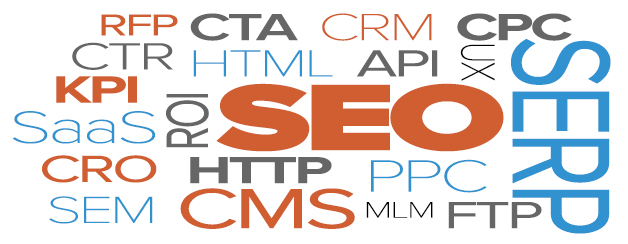 Jargon hinders online communication in all mediums. When you use terms and acronyms that are technical or industry-specific without explaining them, you lose readers and defeat the purpose of communication entirely. You also hurt your digital marketing efforts.
Jargon hinders online communication in all mediums. When you use terms and acronyms that are technical or industry-specific without explaining them, you lose readers and defeat the purpose of communication entirely. You also hurt your digital marketing efforts.
Jargon is so common that most of us use it without realizing. It’s part of our daily language so we forget that readers may not understand these words and acronyms. Otherwise, we’d likely devote a sentence or two to explain industry-specific language, slang, buzzwords, tech speak and all the other types of jargon.
Why do we use jargon?
• The words are search engine optimization (SEO) keywords or phrases
• We believe everyone should know what we’re talking about
• We’re on deadline and don’t take time to rewrite
• We can’t actually convey the term or subject simply
SEO is Not an Excuse for Poor Writing
Search engine optimization (SEO), which includes all the processes and tactics that help your web pages get found via search engines, increased the use of jargon exponentially for a while. SEO was just another excuse for poor writing.

Google’s Webspam Team leader Matt Cutts has been preaching “content is king” for years, yet businesses were still keyword stuffing pages and articles until their sites were penalized. (Search Engine Land published articles about the ridiculousness of keyword stuffing in 2007, yet businesses were still doing it last year.)
Clarity is Key
Cutts answered a question about jargon a couple of months ago in his Google Webmasters Help Forum. The question was, “Should I write content that is easier to read or more scientific? Will I rank better if I write for 6th graders?”
This question nicely tied the most widely recognized type of jargon – scientific terminology – with the concern about how jargon affects SEO. Cutts explained that to get people interested in a topic, you need to explain it well. He also said that if you can’t explain it well, you don’t really understand it.
“The clarity of what you do and how you explain it often matters almost as much as what you’re actually saying,” Cutts said.
No matter how Google changes its algorithm next, it will never penalize clear, understandable content. Plus, pages “rank” better when they are relevant and people read them.
Therefore, you have reason to limit jargon whether you want to be at the top of Internet searches, get more followers or convert new clients. As you write, ask questions like “will the average Joe understand this?” and “why would a prospective customer care?”
Will Jargon Increase Readership or Conversions?
As a reporter I researched topics thoroughly before interviews but asked basic questions as if I knew little. This tactic is the crux of journalism and the core of all communication. If you’re writing for an extremely technical or educated client – like a computer specialist selling Software as a Service or a doctor, convincing them to drop jargon may take some effort.
Always focus on your audience and your goal. If your audience is entirely comprised of people in your industry, then don’t worry about jargon. Otherwise, contemplate:
• Are you writing in layman’s terms?
• Will existing clients and readers learn something from your blog post?
• Are you enticing a prospective client to call and ask more about your services?
• Would a reader continue to stumble over your jargon or just leave the page?
You Don’t Need Help Losing Web Visitors
Research answers that last question. Even your most devoted readers skim your articles and web pages – even your best written ones. Online news source Slate analyzed traffic its web articles received last year and found that nearly 40 percent of readers left their pages immediately. In your Google Analytics, this is your bounce rate. It’s typical that a large portion of people who land on your pages don’t read them.
Slate found that visitors who didn’t bounce immediately scrolled only halfway through its articles before leaving. They proved people scrolled down the page, not that they read the articles. The good news is that people often share your content without reading it. The bad news is you don’t need help losing readers. The Internet will take care of that.
Unless you want to sound like a press release from the federal government, which has a website dedicated solely to improving communication, or you’re writing a Hollywood script that begs for jargon, skip it.
However, if you need tech phrases for that script – or a good laugh – you’ll appreciate this site from Shiny Toy Labs.

